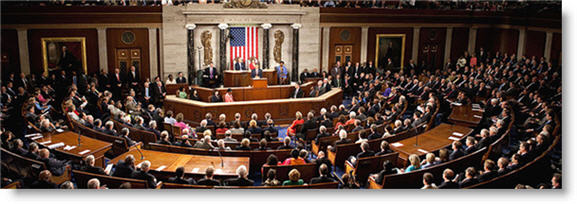The United States Postal Service was in the red $10 billion when it comes to financial debt since of Sept. 30 — not far off away from its $15 billion maximum debt limit, which the agency expects to hit soon in its 2011 fiscal year.
The challenges that continue to hurt USPS’s bottom lines are reflective of the “macro transform in society,” Postmaster General Jack Potter said at a press conference Monday previewing the proposed changes. “All posts all over this globe have been challenged, just as we are, by the diversion of hard copy to electronic medium.”
The Unites States Postal Service is a self-sufficient government agency and does not receive taxpayer dollars. It is to be funded entirely by its revenue generation. However, since the Postal Reorganization Act of 1970 constrains the agency’s operations. It prohibits USPS from closing small branches, selling much of it valuable real estate and is based soled on economic factors. This prevents the agency from modernizing and expanding its services to keep up with technology and changing times.
In other parts of the world Post offices including Italy and Japan, have boosted sales by offering ancillary products and services, like banking. But because of Congress and the 1970 Postal Reform act USPS cannot expand beyond its most basic business model of selling stamp that can be done by machines and delivering letters that are quickly being replaced by email.
USPS has already started taking cuts to its current budget. The agency made $6 billion in cuts last year, reducing its workforce by about 40,000 employees and chopping overtime hours, transportation costs and additional expenses. Congress passed legislation allowing the organization to reduce retiree health benefit payments by $4 billion.
Despite those measures, the agency still expects net loss of $7.8 billion in fiscal 2010.
USPS employs about 600,000 workers, about half of whom will be eligible to retire within the actual following ten years. Potter said the agency has historically overpaid into its pension fund, and would reap significant savings if it stopped prefunding its retiree health care benefits.
New Delivery Schedule and Significant Price Hike
The new USPS mail delivery model will consequently go before Congress for final review. Also a significant USPS price hike is under consideration for 2011 that will impact USPS Certified Mail and Extra Services like Return Receipt, Restricted Delivery, and Registered Mail. The particular price most consumers about — the price regarding the first-class stamp — is locked in at 44 cents at least for 2010.
“At the end of the day, I’m convinced that if we make the changes that are necessary, we can continue to provide universal service for America for decades to come,” Potter said. “We can turn back from the red to the black, but there are some very significant changes that are going to have to be made.”


